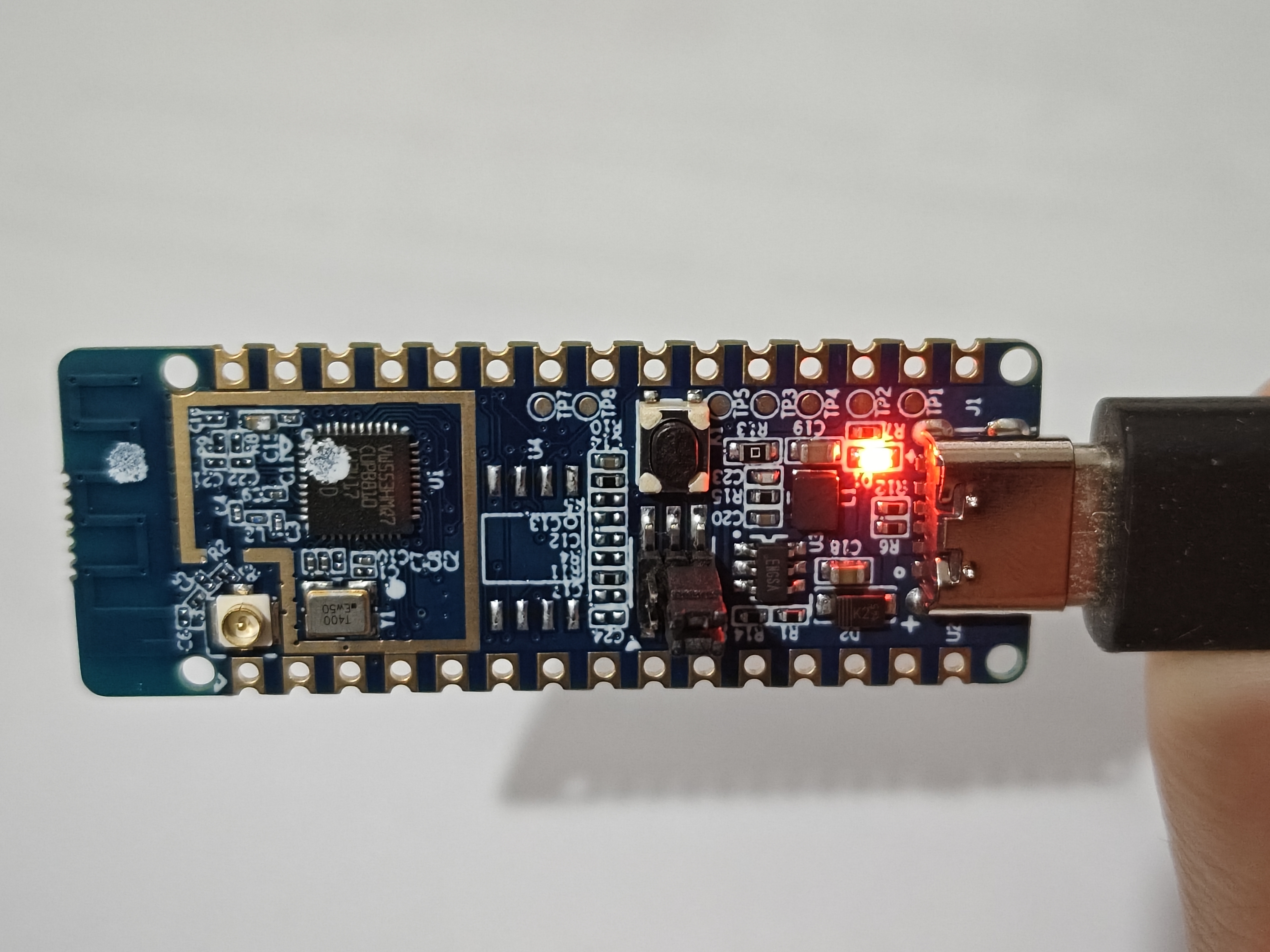
我使用的是官方的GD32EmbeddedBuilder,链接是:
https://www.gd32mcu.com/data/documents/toolSoftware/GD32EmbeddedBuilder_v1.5.2.30854.7z
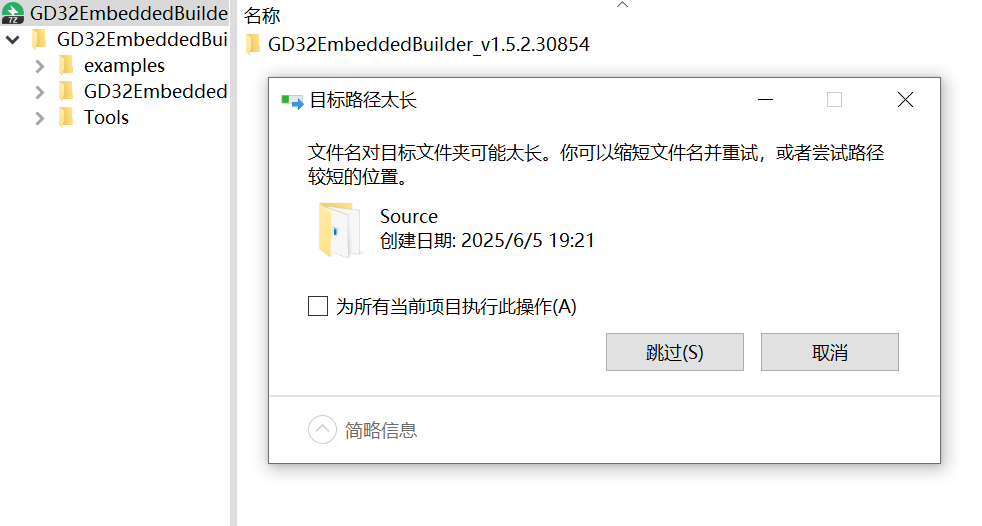
如果遇到类似目标路径太长的问题,可选择放在本身较短的路径下,也可以参考 https://learn.microsoft.com/zh-cn/windows/win32/fileio/maximum-file-path-limitation?tabs=registry#enable-long-paths-in-windows-10-version-1607-and-later 在管理员权限下使用Powershell运行
New-ItemProperty -Path "HKLM:\SYSTEM\CurrentControlSet\Control\FileSystem" -Name "LongPathsEnabled" -Value 1 -PropertyType DWORD -Force首先新建项目,主要要选Project,在下一步再选C Project

选择 C Project

选择Executable,然后选择GigaDevice RISC-V Project,然后选择GD RISC-V MCU Toolchain

根据iCEasy商城中的性能参数
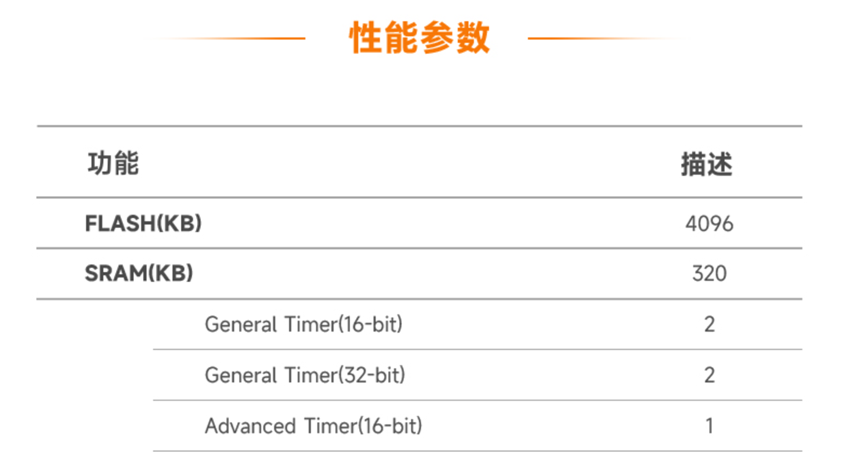
选择GD32VW553HMQ7
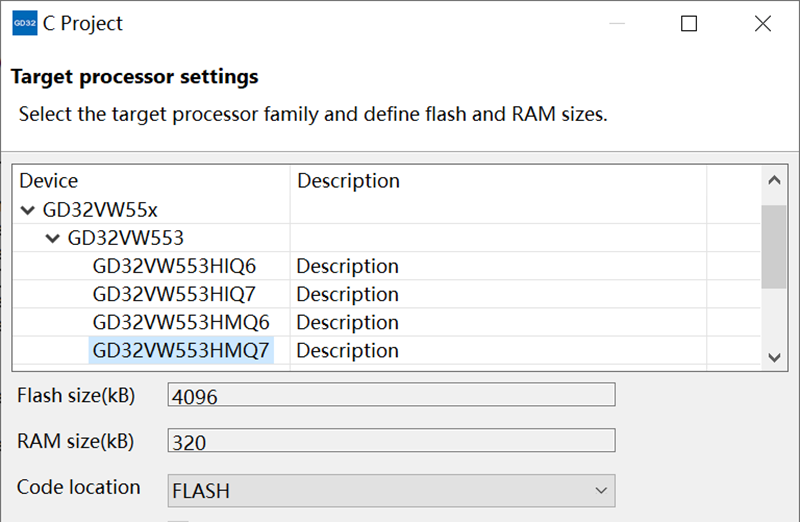
此时项目就初始化完毕了,当前项目文件夹内会是一个官方准备好的Template,很方便。
尝试一个输出三路不同占空比的PWM
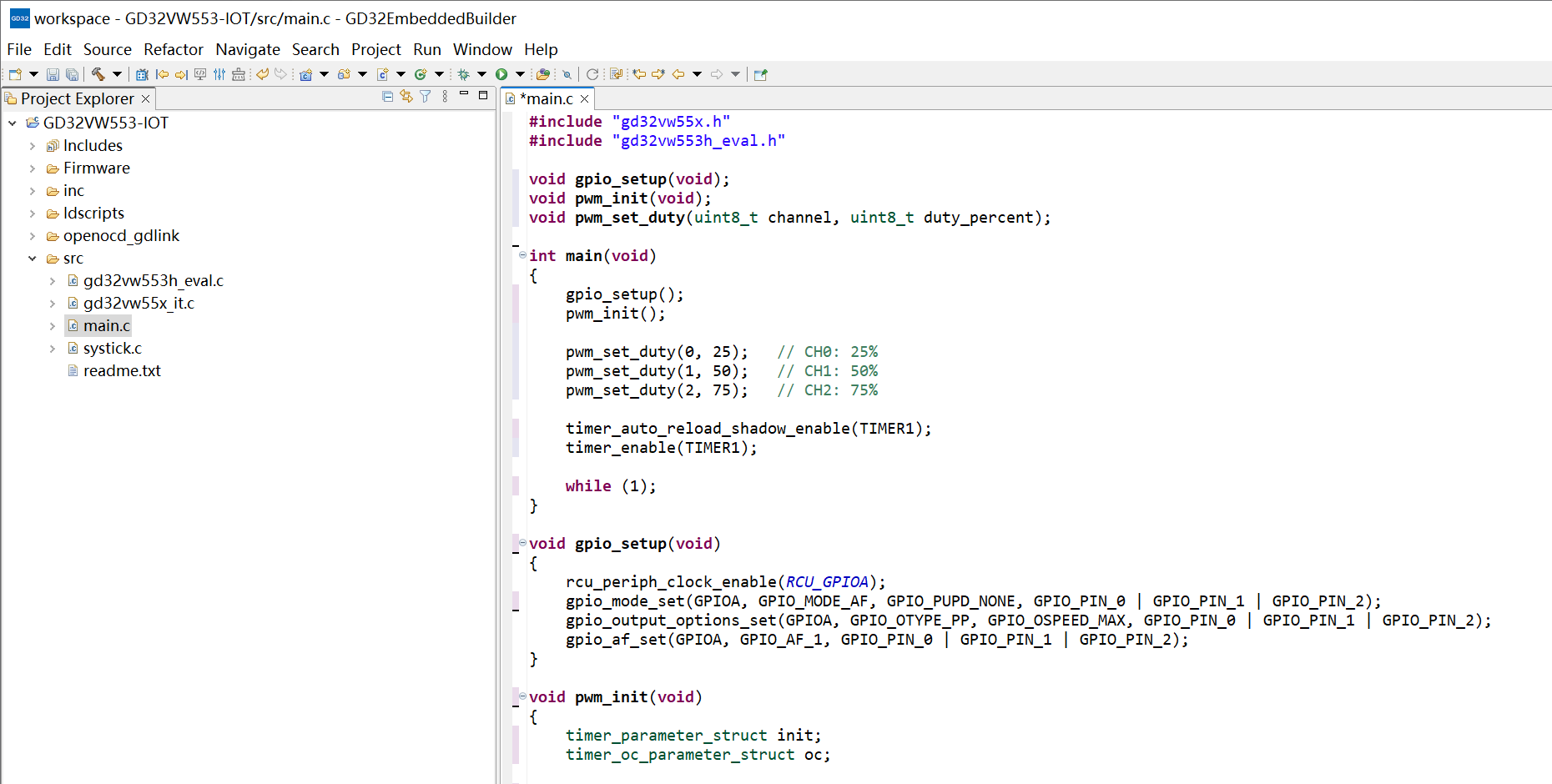
#include "gd32vw55x.h"
#include "gd32vw553h_eval.h"
void gpio_setup(void);
void pwm_init(void);
void pwm_set_duty(uint8_t channel, uint8_t duty_percent);
int main(void)
{
gpio_setup();
pwm_init();
pwm_set_duty(0, 25); // CH0: 25%
pwm_set_duty(1, 50); // CH1: 50%
pwm_set_duty(2, 75); // CH2: 75%
timer_auto_reload_shadow_enable(TIMER1);
timer_enable(TIMER1);
while (1);
}
void gpio_setup(void)
{
rcu_periph_clock_enable(RCU_GPIOA);
gpio_mode_set(GPIOA, GPIO_MODE_AF, GPIO_PUPD_NONE, GPIO_PIN_0 | GPIO_PIN_1 | GPIO_PIN_2);
gpio_output_options_set(GPIOA, GPIO_OTYPE_PP, GPIO_OSPEED_MAX, GPIO_PIN_0 | GPIO_PIN_1 | GPIO_PIN_2);
gpio_af_set(GPIOA, GPIO_AF_1, GPIO_PIN_0 | GPIO_PIN_1 | GPIO_PIN_2);
}
void pwm_init(void)
{
timer_parameter_struct init;
timer_oc_parameter_struct oc;
rcu_timer_clock_prescaler_config(RCU_TIMER_PSC_MUL4);
rcu_periph_clock_enable(RCU_TIMER1);
timer_deinit(TIMER1);
init.prescaler = 159;
init.alignedmode = TIMER_COUNTER_EDGE;
init.counterdirection = TIMER_COUNTER_UP;
init.period = 15999;
init.clockdivision = TIMER_CKDIV_DIV1;
init.repetitioncounter = 0;
timer_init(TIMER1, &init);
oc.outputstate = TIMER_CCX_ENABLE;
oc.outputnstate = TIMER_CCXN_DISABLE;
oc.ocpolarity = TIMER_OC_POLARITY_HIGH;
oc.ocnpolarity = TIMER_OCN_POLARITY_HIGH;
oc.ocidlestate = TIMER_OC_IDLE_STATE_LOW;
oc.ocnidlestate = TIMER_OCN_IDLE_STATE_LOW;
timer_channel_output_config(TIMER1, TIMER_CH_0, &oc);
timer_channel_output_config(TIMER1, TIMER_CH_1, &oc);
timer_channel_output_config(TIMER1, TIMER_CH_2, &oc);
timer_channel_output_mode_config(TIMER1, TIMER_CH_0, TIMER_OC_MODE_PWM0);
timer_channel_output_mode_config(TIMER1, TIMER_CH_1, TIMER_OC_MODE_PWM0);
timer_channel_output_mode_config(TIMER1, TIMER_CH_2, TIMER_OC_MODE_PWM0);
timer_channel_output_shadow_config(TIMER1, TIMER_CH_0, TIMER_OC_SHADOW_DISABLE);
timer_channel_output_shadow_config(TIMER1, TIMER_CH_1, TIMER_OC_SHADOW_DISABLE);
timer_channel_output_shadow_config(TIMER1, TIMER_CH_2, TIMER_OC_SHADOW_DISABLE);
}
void pwm_set_duty(uint8_t channel, uint8_t duty_percent)
{
uint32_t pulse = (duty_percent * 16000UL) / 100;
switch (channel) {
case 0:
timer_channel_output_pulse_value_config(TIMER1, TIMER_CH_0, pulse);
break;
case 1:
timer_channel_output_pulse_value_config(TIMER1, TIMER_CH_1, pulse);
break;
case 2:
timer_channel_output_pulse_value_config(TIMER1, TIMER_CH_2, pulse);
break;
default:
break;
}
}这款和以往的GD32的区别除了采用RISC-V架构外,我觉得影响最大的是集成了WiFi和BLE,这部分感觉目前网上资料还比较少,开发的话可以参考以下网址:
https://gd32mcu.com/data/documents/applicationNote/AN158_GD32VW553_Wi_Fi_kaifazhinan.pdf
其它例程:
https://www.gd32mcu.com/data/documents/toolSoftware/GD32VW55x_Firmware_Library_V1.4.0.7z

